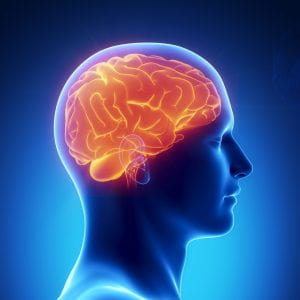Cognitive development is essential to a child’s growth, describing the evolving mind, its ever-changing perceptions of the world, and how each unique brain thinks and solves problems in its own individual way. Not only is cognitive development important for learning in general, but it can also affect other domains, such as language and social/emotional skill development(Virtual Lab School, n.d.). While cognitive development is reliant on both environmental factors and genes, and the brain is continuously taking in new information all ages, it is meaningful to remember that the brain is most malleable in a child’s youngest years. Because of this, it is specifically crucial that a child’s challenges in reaching cognitive milestones are identified early on. There are typical milestones reached in the cognitive domain by children of each age group, made up of achievements such as:
Age 3:
- Know their own name, age, and gender
- Can follow 2- to 3-step instructions
- Grasps the concept of “two” (They understand when they have two candies rather than one, but usually don’t understand the concept of higher numbers yet)
- Can complete a puzzle with 3-4 pieces
- Can sort objects by shape and color
- Has an active imagination, usually used to play male-believe with inanimate objects
Age 4:
- Understands the concepts of “same” and “different”
- Understands the concept of counting and may know numbers
- Can draws a person with 2-4 body parts
- Is beginning to understand time
- Can play board games or card games
- Can tell you what he thinks will happen next in a story
Age 5:
- Can count 10 or more objects.
- Can names at least four colors correctly
- Understands items used every day (Ex. Money, food, or appliances)
- Can draw a person with at least six body parts
- Can copy a triangle and other geometric shapes
- Understands the concept of time
- Can print some letters and numbers
- Can recognizes own printed name and may be able to write it
Ages 6-8:
- Start to understand the perspectives and feelings of others, but may still be focused on themselves in the beginning
- A gradual shift begins, as children want to play with their peers rather than their parents
- Usually play with children of the same gender
- Can solve simple math problems
- Has solid sense of time
- Is learning to read and write, and is constantly expanding vocabulary
Frequent interaction and healthy relationships, where rich vocabulary is used and questions are asked can help children develop cognitively. The importance of relationships, both with adults and with peers of a similar age, in cognitive development is often overlooked. We forget that relationships are central to development, and that our learning would be severely stunted without the help and presence of others(Virtual Lab School, n.d.). We pick up new words, beliefs, and ideas from those around us when we are young, leaving infinite room for parents, whose young children are aching to play with them, to support their children in reaching cognitive milestones. To aid children in growing cognitively, parents and caregivers can model appropriate attitudes and outlooks that they would like their children to develop. To do this, they should:
- Avoid use of biased language(including nicknames)
- Avoid stereotypes (towards people of other cultures, genders, backgrounds, etc.)
- Show their children that they are listening carefully to their questions in order to make them feel valued and allow their self-worth to grow(Child Time Learning Centers,2017)
- Encourage their child to think originally and solve out their issues on their own to promote confidence (Child Time Learning Centers,2017)
- Take their child to new and exciting places to stimulate their imagination and curiosity


